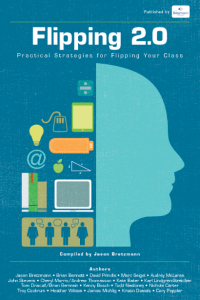I am a good teacher; or at least I think I am using the typical teaching metrics. I have good pass rates on the Regents exams, my psychology elective is fully subscribed, and I have a good rapport with my students. But here’s the question: am I doing the best I can for my students? Am I teaching them to think critically, use reason and logic or am I just teaching them to pass a standardized test? While attending the Library of Congress Summer Teacher Institute I decided that I need to up my game.
At the LOC Summer Teacher Institute, we learned a variety of methods to encourage students to think critically. After each demonstration I thought “Why am I not doing this with my students?” I learned that although I am teaching them enough to pass tests and to have a general knowledge of the subjects I teach, they are not learning as much as they could (or should). Basically, it’s all about putting the students’ learning and critical thinking process first above my teaching.
You would think that this would be easy for me to swallow and to put in to place but it’s proved to be difficult. I think that a large part of the problem is me. It’s that whole “sage on the stage” thing. It’s what I grew up with and was taught to do in college and what I have done for the past 13 years. I have a difficult time giving up how I have always seen my role in the classroom.
I am diligently working to remedy this situation. I have begun gradually flipping my classes in the hopes of filling class time with more meaningful activities. That really hasn’t been enough of a change and so the first week in February (the start of the new semester) I will be moving to a completely flipped Psychology class using the mastery model. I am extremely excited and anxious as well. I hope that my students will be willing to accept a really big change from what they have experienced for the past 11-12 years of schooling. I hope that I will be able to retire my sage role and become the “guide on the side” that I know my students need.
At the LOC Summer Teacher Institute, we learned a variety of methods to encourage students to think critically. After each demonstration I thought “Why am I not doing this with my students?” I learned that although I am teaching them enough to pass tests and to have a general knowledge of the subjects I teach, they are not learning as much as they could (or should). Basically, it’s all about putting the students’ learning and critical thinking process first above my teaching.
You would think that this would be easy for me to swallow and to put in to place but it’s proved to be difficult. I think that a large part of the problem is me. It’s that whole “sage on the stage” thing. It’s what I grew up with and was taught to do in college and what I have done for the past 13 years. I have a difficult time giving up how I have always seen my role in the classroom.
I am diligently working to remedy this situation. I have begun gradually flipping my classes in the hopes of filling class time with more meaningful activities. That really hasn’t been enough of a change and so the first week in February (the start of the new semester) I will be moving to a completely flipped Psychology class using the mastery model. I am extremely excited and anxious as well. I hope that my students will be willing to accept a really big change from what they have experienced for the past 11-12 years of schooling. I hope that I will be able to retire my sage role and become the “guide on the side” that I know my students need.

I have spent the school year so far reading like a fiend---all kinds of books, blogs, and articles about putting students at the center of learning. I have done a number of mini experiments with my classes which have moved both me and them out of our comfort zone. I have used sites like ZooBurst to have students create children’s books on abolitionists and apps like Viddy for students to illustrate answers to review questions for Psychology. I have had students organize themselves based on the documents they were assigned to analyze and had students search out their own supplemental information on the topics we discuss in class. At every turn I have asked for student feedback and have used that to modify future trials. Luckily, my students are very willing to provide constructive criticism!
I will be attending three conferences in the next two months which will also help me in reaching my goal to provide my students with the best learning environment possible. I will be using my Psychology classes as my model to move to a flipped mastery model for my US History classes for the 2014-2015 school year. I truly believe that the move to flipped mastery will foster inquiry, creativity, and critical thinking on the part of my students. I also believe that it will help to put my students on an equal footing in terms of access to technology, extra help, and the biggest item---it will eliminate homework.
So, here’s to my year as a teacher. The teacher my students need me to be.
I will be attending three conferences in the next two months which will also help me in reaching my goal to provide my students with the best learning environment possible. I will be using my Psychology classes as my model to move to a flipped mastery model for my US History classes for the 2014-2015 school year. I truly believe that the move to flipped mastery will foster inquiry, creativity, and critical thinking on the part of my students. I also believe that it will help to put my students on an equal footing in terms of access to technology, extra help, and the biggest item---it will eliminate homework.
So, here’s to my year as a teacher. The teacher my students need me to be.
 RSS Feed
RSS Feed


